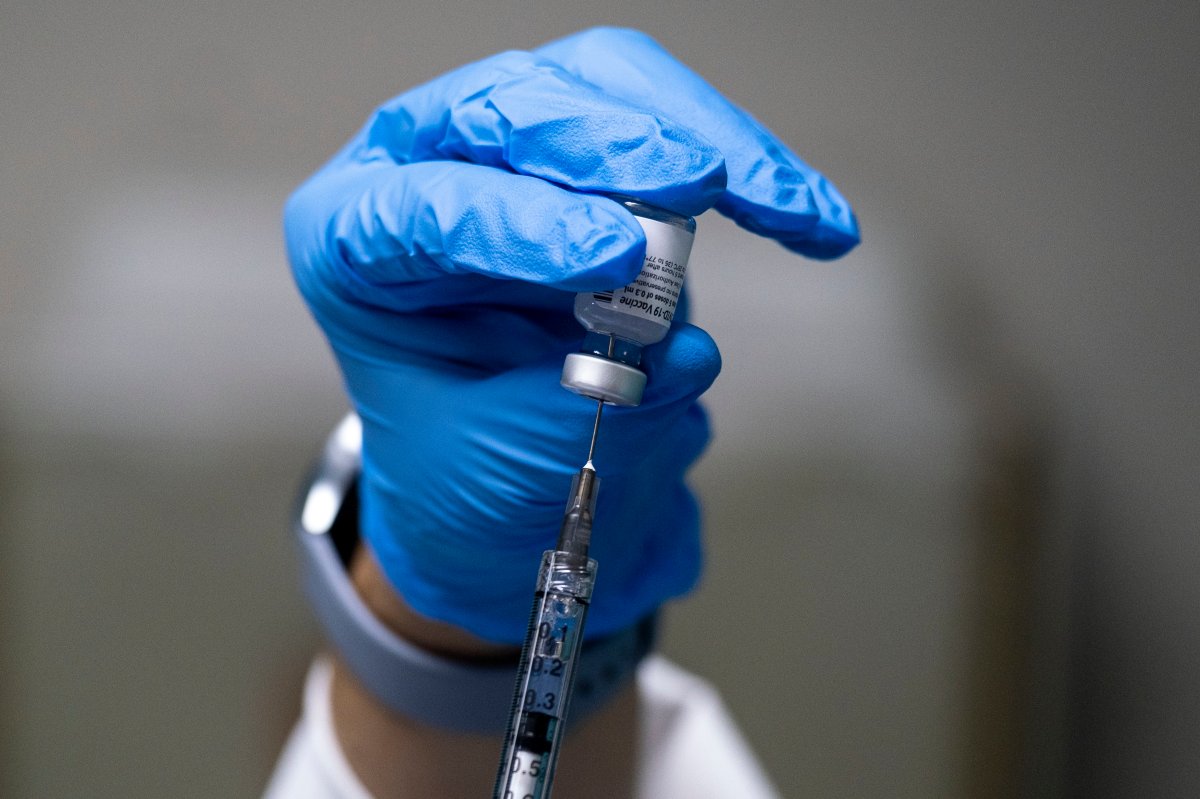Manitoba will no longer hold back half of the Pfizer vaccine doses it receives, Premier Brian Pallister revealed Wednesday.

The vaccine requires two doses about three weeks apart, so health officials have been keeping half of the shipments in reserve out of an abundance of caution.
“In the early days, it was very uncertain. We were told by the suppliers, actually, ‘Don’t count on getting that second vaccine, you better just apply half of it,'” Pallister said.
“We are going to rely on the supply chains now and in the future that have been now more clearly established.”

The move puts Manitoba in line with provinces such as Saskatchewan, Alberta, B.C. and New Brunswick, which have all said they don’t plan to hold back doses.
However, the premier added a reserve stock will be maintained as a precaution.
“We are going to hold back a safety stock, so we’ll have a baseline inventory so we’ll be able to withstand short-term vaccine supply disruptions going forward of a week to 10 days,” Pallister said.
“But we are trying to get as many vaccines out as safely as we can.”
The actual number of doses in reserve will fluctuate depending on how much is flowing into the province, Pallister says, but will ensure at least one week’s worth of doses can be administered even if the supply is temporarily disrupted.
The province expects to receive and administer some 40,000 doses of the vaccine before the end of January, according to the premier, with most of those going into the arms of front-line health-care workers.
—With files from David Lao and Abigail Bimman
Questions about COVID-19? Here are some things you need to know:
Symptoms can include fever, cough and difficulty breathing — very similar to a cold or flu. Some people can develop a more severe illness. People most at risk of this include older adults and people with severe chronic medical conditions like heart, lung or kidney disease. If you develop symptoms, contact public health authorities.
To prevent the virus from spreading, experts recommend frequent handwashing and coughing into your sleeve. They also recommend minimizing contact with others, staying home as much as possible and maintaining a distance of two metres from other people if you go out. In situations where you can’t keep a safe distance from others, public health officials recommend the use of a non-medical face mask or covering to prevent spreading the respiratory droplets that can carry the virus. In some provinces and municipalities across the country, masks or face coverings are now mandatory in indoor public spaces.
For full COVID-19 coverage from Global News, click here.
- Invasive strep: ‘Don’t wait’ to seek care, N.S. woman warns on long road to recovery
- Canadian man dies during Texas Ironman event. His widow wants answers as to why
- ‘Super lice’ are becoming more resistant to chemical shampoos. What to use instead
- Solar eclipse eye damage: More than 160 cases reported in Ontario, Quebec








Comments